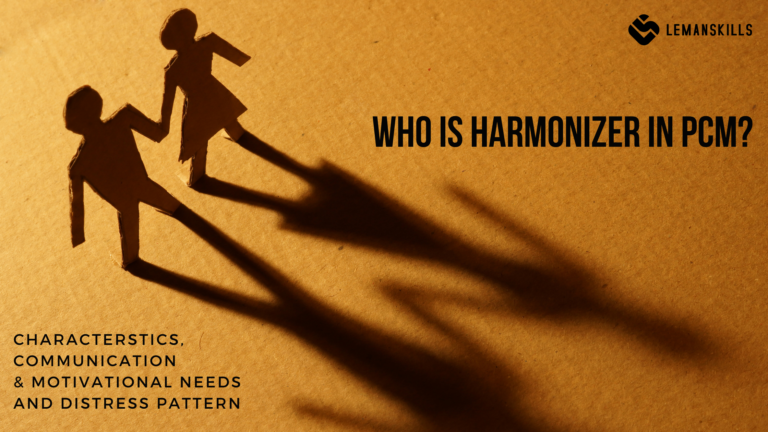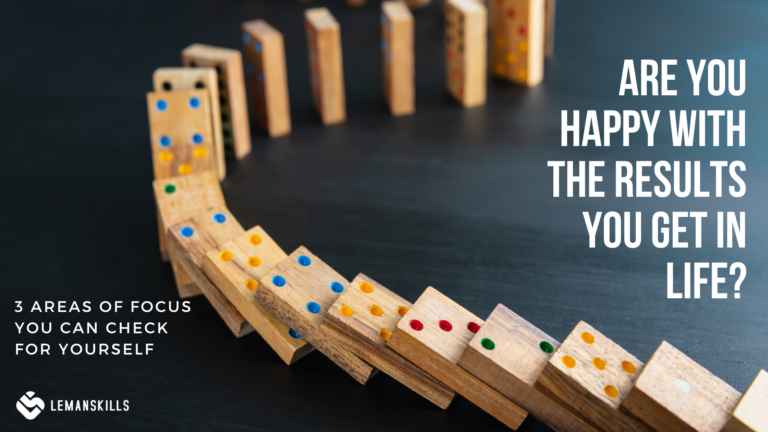
Process Communication Model (PCM): Harmonizer
Some people are focused on data, some on exchanging opinions. Some wants to have fun, and some want to stop talking and start doing. And some are speaking emotions and take care of others. Do you know one or two people who are strong in that are? That’s the Harmonizer. The fifth out of six personality types in Process Communication Model. We’ve started the story about PCM HERE, then we’ve described Persister, Thinker, Promoter and Rebel. Today we’re adding another piece to our PCM puzzle, so we understand different people once we meet them, have them as team members or stakeholders in different circumstances (professional and private). For those of us who has little Harmonizer energy, this one can appear like an extremely emotional person who can’t think logically. Why? Let’s unpack it today! How do we recognize Harmonizer? Harmonizer is a person who experience the world through the lens of emotions. Most of the time, they use their empathetic state: they have a very good and fast access to their emotional states, and they use this skill to map and understand it with others. How to recognize a Harmonizer in the Base of personality? Again, the easiest way to make a strong hypothesis is to look for the key words that the person uses the most. For Harmonizer it will be: “I feel”, “In my heart…”, “I love…”, “I am sad”, “I feel frustrated…”. They’ll use the whole spectrum of wording that describes emotional states. They say all that because they want to connect with others, but differently than a Rebel who wants to connect with as many people as possible, to share reactions. Harmonizer wants to have meaningful relations, that are important for them: privately and at work as well. They take care of others, about the atmosphere in the team. When they see a micro conflict or even a symptom that one can appear, they do everything in their power to stop it. They remember about birthdays, taking charge of organizing gifts, birthday cards and all types of evidence that we care about each other. The recognition of Harmonizer is also easier when we look on their non-verbal communication: most of the time their face is warm, with a lot of sighs of emotions on it. Their voice is soft, soothing, comforting. They lean heir body towards the other person while taking with them, using a moderate number of gestures to emphasize the support and care that emanates from their bodies. If you see and hear it, that’s a strong indicator that there’s a Harmonizer in the Base on the other side of the communication process. How to use it to get along with that kind of person? What does Harmonizer need in communication? The Harmonizer needs communication process where they have a chance to express their emotions. Extremely important for them as well is to have a space, where they can go into contact with others to build meaningful relations and to matter to people. To be efficient in communication with Harmonizer, we need to use nurturative channel of communication. It means that we need to reach to the comforting and caring level of our energy to open a conversation. That means that asking questions or directly saying what’s there to be done won’t work in Harmonizer’s case. How to do it? Using the same example as before: when we want to delegate a task, so a chosen employee covers it, the great approach will be opening the conversation with care first. “Hi Kate, thank you for finding out the time for us to talk. I know that lately it’s been hard, so I am grateful that we made it together. I’m going to take some things out of your plate and in exchange, I have a task that I feel will be a good fit for you.” Once they FEEL cared of, we have them on board to discuss the details (scope, deadline, support, required learning etc.). They value Benevolent interaction style. It means that they need care, meaningful relations within they feel that they belong, are needed and important part of a team or community. One of the worst things that we can do while getting in contact with Harmonizer is to be too directive, asking questions, in a high speed won’t work very well too. Yes, they need structure and clear contract on what’s there to be done and for when, but they need to be in comfort to work around it. They value relations over goals, so it’s crucial to remember about it while building an environment for them. Harmonizer seeks to answer the existential question: am I loved? It’s not always about the romantic love. It’s more about the feeling that we are important, needed, valued as people. That we matter for others. For them the following equation is the only truth. I’m loved by others = I’m valuable as a person Two motivational needs attached to this PCM type are recognition of person and sensory. It’s important to know it, since when those needs are not met, Harmonizer goes into distress and loses access to their skills, abilities to think clearly. Recognition of person means that we are seen as people. Not for what we do, but who we are. It’s different than the recognition of work that we’ve seen in case of a Thinker or Persister. Instead of “good job” we say: “it’s good to have you here”. The sensory means that this person is experiencing the world by using their senses. The environment should be nice, pleasant, they like colorful clothes, comfortable, warm and soft. Listening music or other sounds that have a good impact on their mind and body. Experiencing the nature, having plants in the room. Each Harmonizer can need something a little different, but the key thing is that they feed their senses. That kind of environment will cover what’s the most important for Harmonizer so they can

